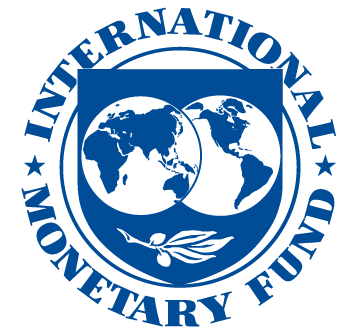The Nigerian government was in the news this week. Its rating in the finance circle notches up on confirmation that the International Monetary Fund (IMF) has removed it from the list of indebted nations.
According to the IMF, as of April 30, 2025, Nigeria has fully repaid the financial support of about US$3.4 billion it requested and received in April 2020 from the IMF under the Rapid Financing Instrument to help alleviate the impact of the COVID-19 pandemic and the sharp fall in oil prices.
In a statement by the IMF Nigeria office, Nigeria is expected to honour some additional payments in the form of Special Drawing Rights charges of about US$30 million annually.
Repayment confirmation was in addition affirmed by the country’s agency managing debt affairs, the Debt Management Office (DMO).
Managing Director, Patience Oniha confirmed this in a chat with Saturday Telegraph. The loan was contracted during the administration of the immediate past government headed by former president Muhammad Buhari.
Experts’ views:
Speaking with Saturday Telegraph, developmental economist, Odilim Enwegbara faulted the government’s decision. He said, given the massive economic challenges facing the country, the best decision would have been to do a debt reschedule.
“The best decision is to renegotiate the debt. Paying that money must put funds into some people’s pockets; somebody must have collected 5% or 10% of that. Once organisations like the IMF or World Bank makes it clear that if you pay such debts, those who initiated them, who helped, will get 10%, what they call a consultancy fee, the person will not do it directly; they will bring someone who will do it.
“Food is too expensive for Nigerians. If you invest in even infrastructure and agricultural infrastructure alone, it will scale up development. You understand, if you invest in agricultural infrastructure so that the food will be processed, food logistics will be easier to maintain and faster. These are the issues that you should have raised. Nigerians are hungry, and they are going to pay the debt. Those debts can be renegotiated or rescheduled, you know, rescheduled.
“Once they start saying no, you use the New York Times and CNN to talk about it. And they will run because they know they are crooks. There is no way the debt will be paid without somebody’s personal interest,” Odilim said.
In his comments, Dr. Aliyu Ilias, a political economist, shared a similar view. He said that repayment of the debt doesn’t call for celebration, saying that the IMF merely set traps for more borrowings.
He said: “Basically, I would like to see the Debt Management Office come out in clear terms that we have been able to pay some of our legacy debt, and they should break it down because it still looks big. We cannot owe up to a particular amount now and you are saying we have paid, it’s very contradictory.
“Going further, this is an idea from the IMF to keep subjugating Nigeria. They are painting a scenario as if we have paid our debts, meanwhile the major debts are still there and we’ve not paid.
“You will recall that China is becoming a darling to most African countries, and Nigeria is even a partner in BRICS right now, so they are looking for other avenues to attract Nigeria to come and borrow.
Meanwhile, borrowing at this point in time is going to be a negative external interest because it’s not going to help us but dig us more into poverty .They are trying to put our future in a debt scenario. It’s not a good one; it is not something that is worth celebrating, so we don’t need that kind of news. Our normal debt has not been paid.
“I can’t agree with the IMF; it is a style by them to subjugate Nigeria into coming to collect more loans. I think that’s the idea because if you don’t offset that debt, we will not be able to access other debts, so that’s why they are using an idea to say, ‘Just pay this little and move on,” Dr. Ilias said.
Debt repayment, a good development
However, Mr. Gabriel Idakolo, finance expert, differed. He described the debt repayment as a good development.
“The clearance of the N3.4 trillion legacy debt in tranches is a sign of good fiscal management by the Nigerian government. Clearing a legacy debt owed to a multilateral agency like the IMF improves the credit rating of Nigeria tremendously and gives us room for a better partnership with the IMF for infrastructural developments. This move is strategic in the sense that any future request by Nigeria will be treated with confidence knowing that the country has the willingness and capacity to meet its obligations. The loan repayment is a product of long-term planning, and what the Tinubu administration has done will not impede focus on infrastructural developments; instead, it will give the government room for more productive partnerships for development,” he noted.















